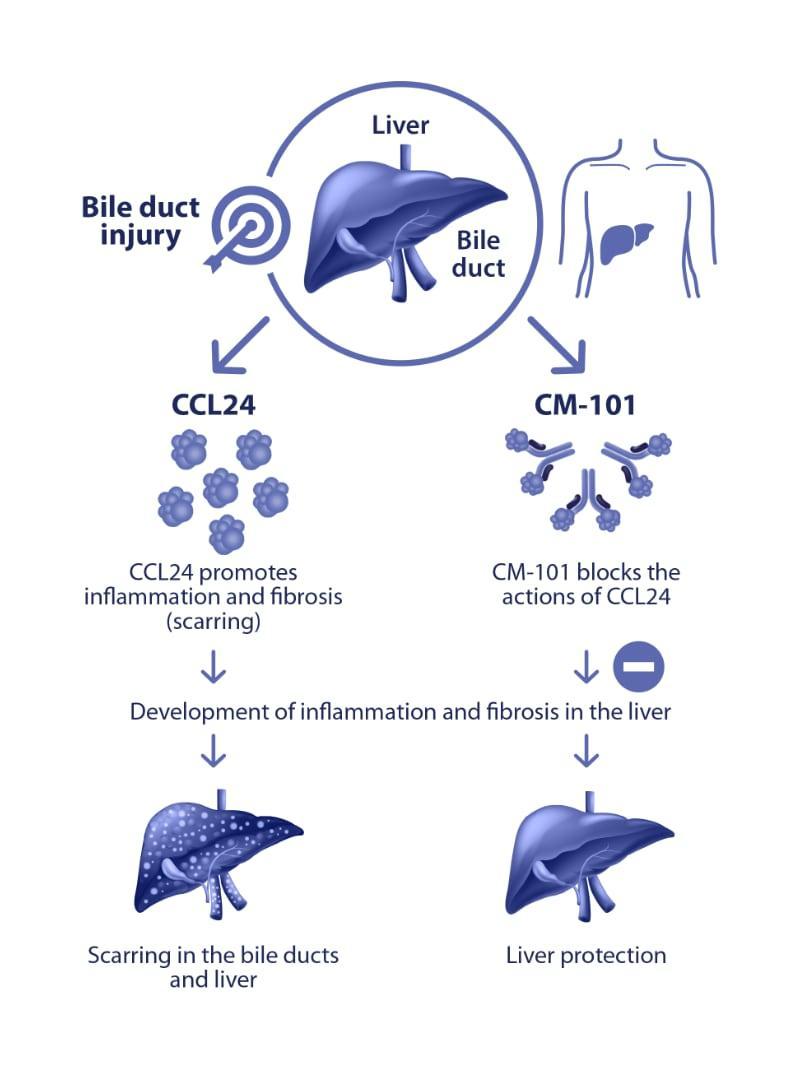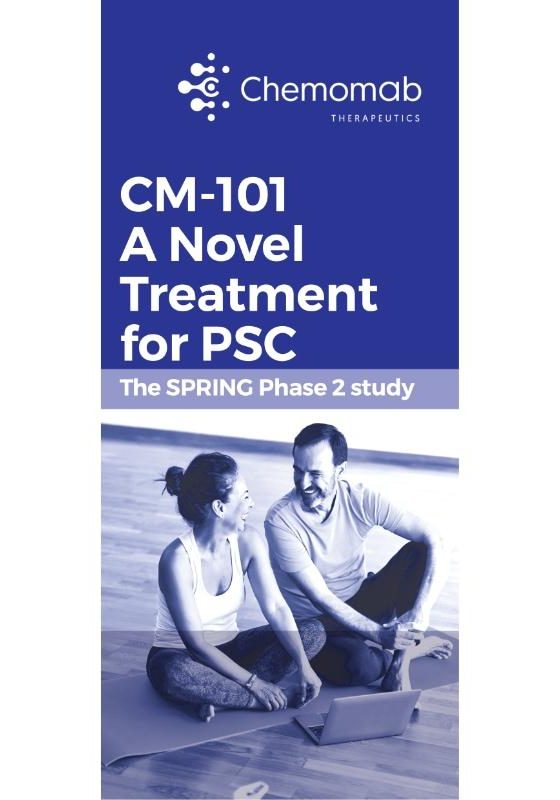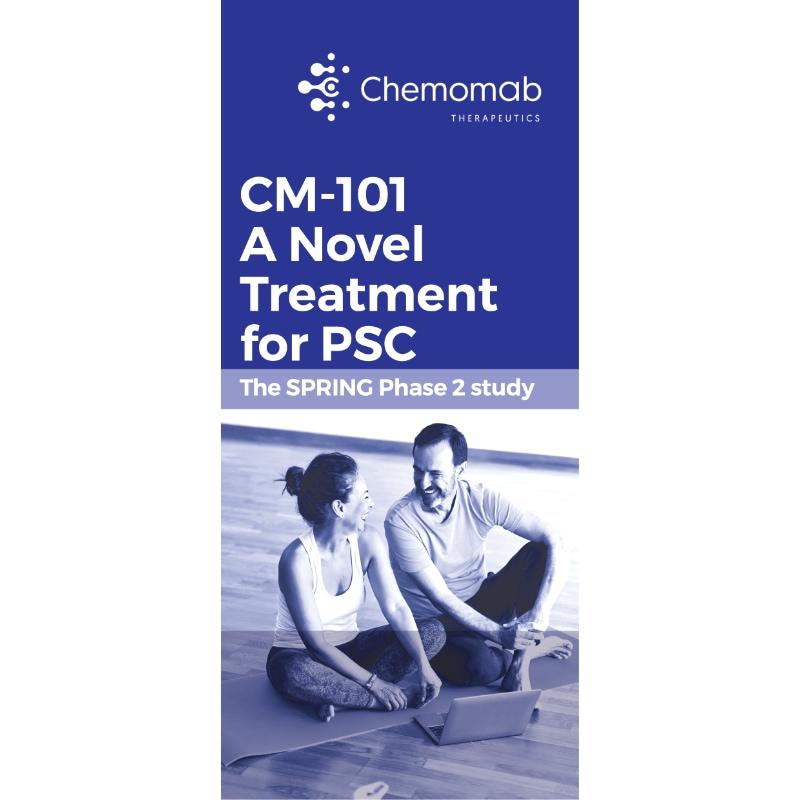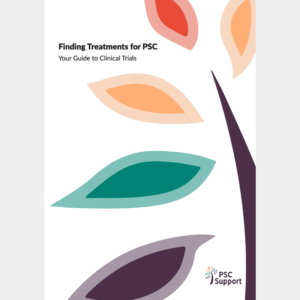The SPRING study is investigating CM-101, that can block the actions of a small protein called CCL24. CCL24 is involved in cell “communication” that helps regulate inflammation and is involved in the development of fibrosis (scarring). CCL24 is found in higher concentrations in PSC patients than the general population.
CM-101 is a monoclonal antibody, created by ChemomAb. It can block the actions of CCL24 and thus its role in the development of inflammation and fibrosis. CM-101 was tested in several animal models, including the MDR2 knockout mice (mice that have severe fibrosis in the bile ducts and liver, eventually developing cirrhosis). These tests showed that CM-101 significantly reduced liver fibrosis, and markers that indicate the presence of inflammation in the bile ducts.





